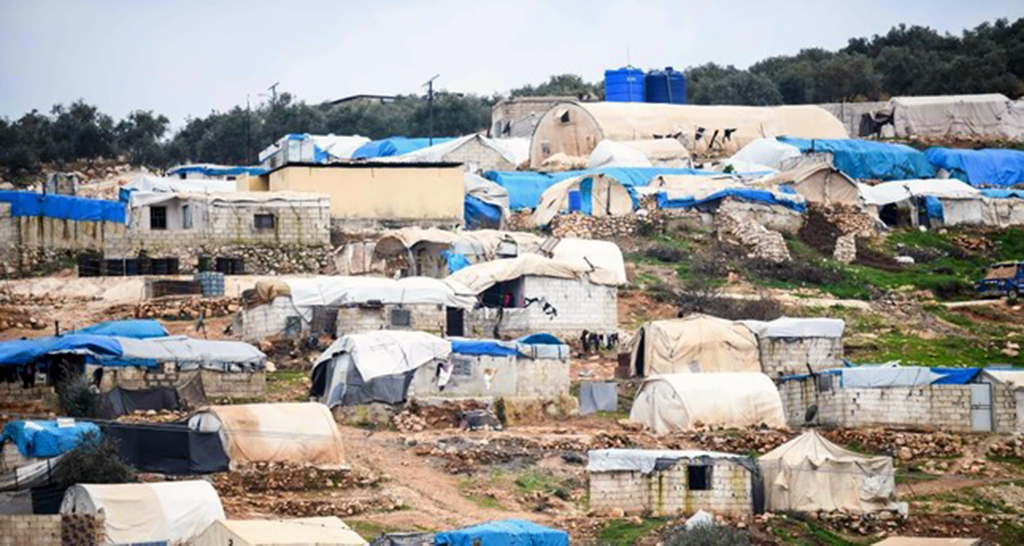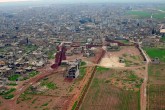The Syria debate will consume more of Turkey’s time and energy in 2019 due to the side effects of Washington’s imminent withdrawal from the conflict zone and Ankara’s growing footprint there. The Turkish public associates the Syria file with three interrelated issues: The fate of the PKK-affiliated People’s Protection Units (YPG), the future of the moderate opposition and what lies ahead for Syrian refugees.
Under immense pressure at home, U.S. President Donald Trump is inclined to slow down the withdrawal of American troops from Syria. He wants to protect the YPG militants, but it remains unclear what will happen to the territories currently under Washington’s control. Both Russia and the U.S. are mulling over the creation of a so-called buffer zone, in an attempt to secure Turkey’s southern border. Whereas Moscow wants the Assad regime to control a larger portion of Syrian territories to strengthen its ally’s hand at the negotiating table, Washington is looking for ways to save the YPG from eradication.
Having suffered more side effects of the Syrian civil war than any other country, Turkey happens to be the only stakeholder working for lasting peace in Syria. Home to more than 3.5 million Syrian refugees, the country conducts military operations and supports the Astana process to promote a political transition that would include the Sunni Arab community. To ensure lasting peace and stability in Syria, two considerations – driving out the YPG militants and integrating the moderate opposition into the new Syria – are of key importance. The first development is crucial for the country’s territorial integrity and neutralizing threats against Turkey’s national security. The second factor is necessary, so some 6 million Syrian refugees can return home. Finally, it should go without saying that the future of Bashar Assad is closely tied to these two considerations.
Advocates of dialogue between Turkey and the Assad regime are missing a critical point. It is impossible to hold genuinely free and fair elections in Syria unless the moderate opposition enjoys some kind of political status – nor will Syrian refugees return to their native country under those circumstances. The mass influx of Syrians to Europe just a few years ago demonstrated that the problem of illegal immigration has the potential to determine Europe’s political future. Far-right extremists and populist movements have been chipping away at its political center, citing the supposed refugee threat. To be clear, Turkey’s military footprint in Syria and Ankara’s support to the moderate opposition are directly related to the safe return of most Syrian refugees from Turkish soil to their own lands.
Turkey does not want any Syrian territory for itself. The Turkish people will continue to treat their Syrian brothers and sisters with due hospitality and fight for their right to have a country of their own. At the same time, Turkey wants Syrians across its southern border – Syrian Arabs, Turkmens, Kurds and Christians. It does not wish to see the PKK/YPG terrorists or Assad, the murderer of Syrian citizens, in charge. Until all these boxes are checked, the Syria file will never be closed.
[Daily Sabah, 5 January 2019]
In this article
- Opinion
- Bahrain
- CENTCOM
- Civil War
- DAESH
- Daily Sabah
- Donald Trump
- East of the Euphrates
- Elections
- Europe
- Far-Right
- Fight against DAESH
- Iraq
- Kurdistan Workers' Party Terrorist Organization (PKK)
- Middle East
- Migration
- NATO
- NATO Ally
- Operation Euphrates Shield
- Opposition
- Peace Corridor
- People's Protection Units (YPG)
- PKK - YPG - SDF - PYD - YPJ - SDG - HBDH - HPG - KCK - PJAK - TAK - YBŞ
- Recep Tayyip Erdoğan
- Russia
- Safe Zone
- Sunni
- Syria
- Syrian Civil War
- Syrian Conflict
- Syrian Crisis
- Syrian Democratic Forces (SDF)
- Syrian National Army (SNA)
- Syrian National Coalition
- Syrian Opposition
- Syrian Refugees
- Terrorism
- Trump’s Syria Withdrawal
- Turkish Foreign Policy
- Turkish-American Relations
- Türkiye-US Relations
- Türkiye-US Security Relations
- Türkiye's Foreign Policy
- Türkiye's Operation Peace Spring
- Türkiye’s Operation Olive Branch
- United Arab Emirates (UAE)
- United States (US)
- US President
- US Withdrawal from Syria
- US-PKK/PYD/YPG/SDF Relations
- US-Terror Relations
- Vladimir Putin



